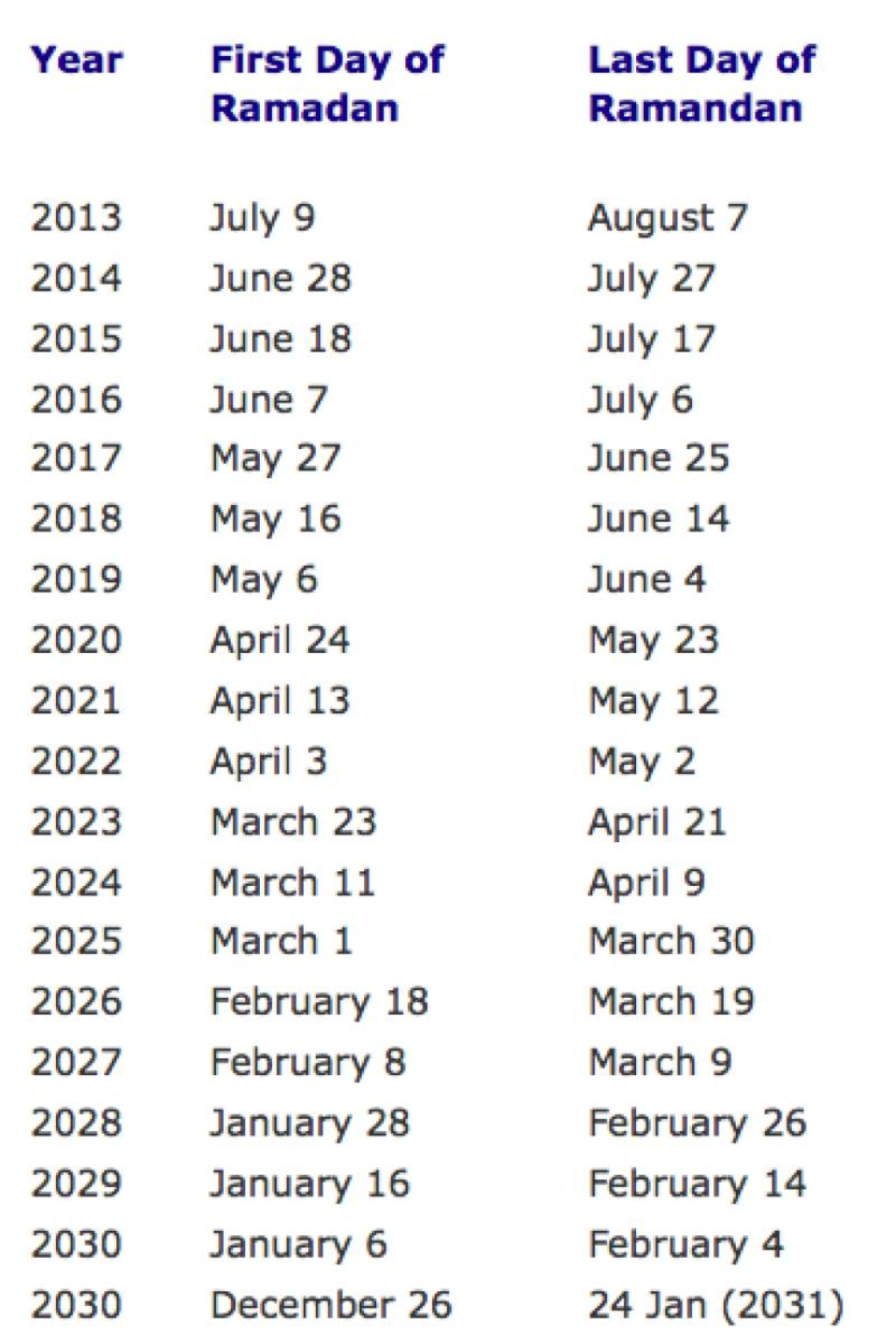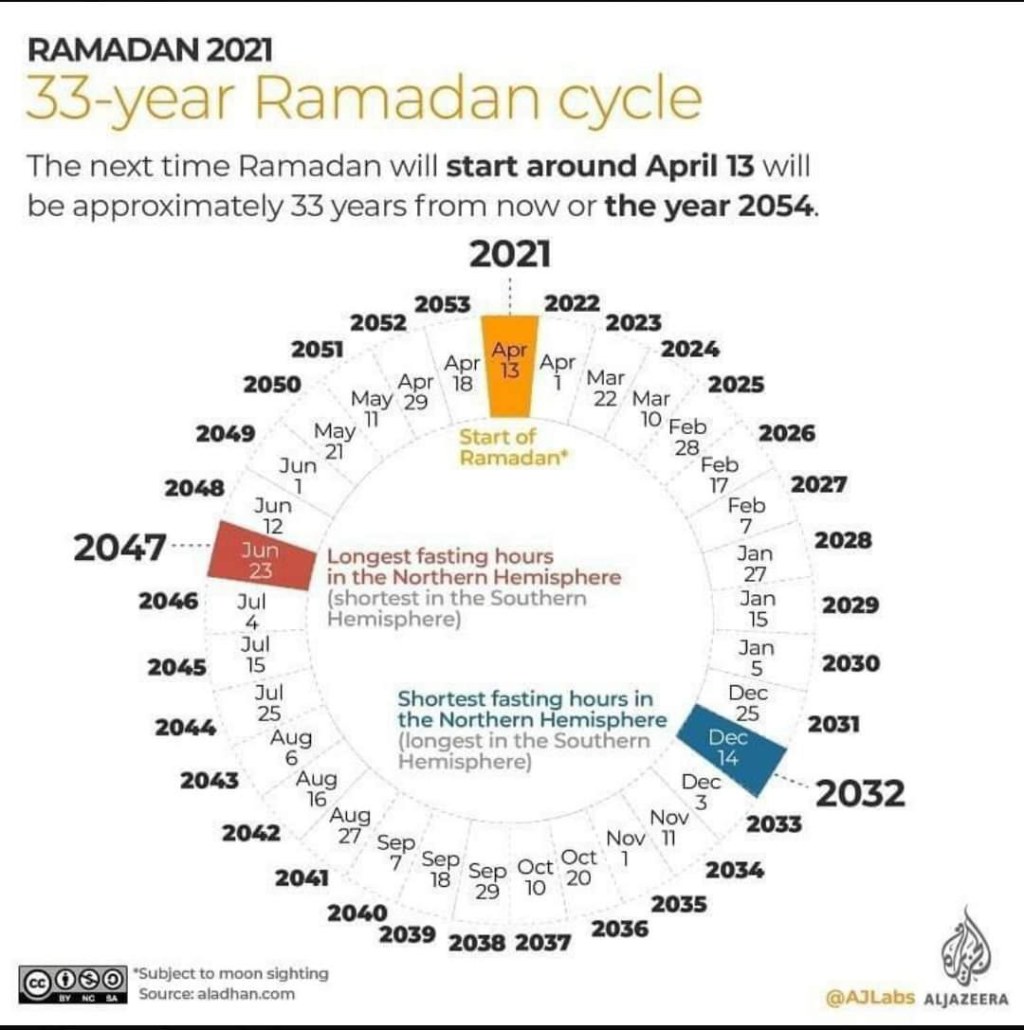Mark Your Calendar: Discover The Official Ramadan 2030 Date!
Ramadan 2030 Date: A Guide for Ramadhan Enthusiasts
Welcome, Ramadhan enthusiasts, to our comprehensive guide on the date of Ramadan in 2030. In this article, we will provide you with all the necessary information about the exact dates, significance, and other important details regarding Ramadan in the year 2030. So let’s dive right in and explore the upcoming Ramadan date!
Table: Ramadan 2030 Date
Year
Start Date
End Date
2030
April 10th
May 9th
2 Picture Gallery: Mark Your Calendar: Discover The Official Ramadan 2030 Date!


What is Ramadan 2030?

Image Source: dailypakistan.com.pk
In 2030, Ramadan is the ninth month of the Islamic lunar calendar, observed by millions of Muslims worldwide. It is a period of fasting, self-reflection, and increased devotion to worship. Muslims abstain from eating and drinking from dawn until sunset during Ramadan, focusing on spiritual growth and strengthening their relationship with Allah.
Who Observes Ramadan?
Ramadan is observed by Muslims of all ages and backgrounds. It is an essential pillar of Islam and is obligatory for all adult Muslims who are physically and mentally capable. Children, pregnant women, nursing mothers, and those with health conditions that prevent fasting are exempt from fasting during this month.
When Does Ramadan 2030 Start?

Image Source: redd.it
Ramadan in 2030 will start on April 10th, based on the sighting of the moon. The exact start date may vary depending on the moon sighting in different countries. Muslims rely on the sighting of the crescent moon to determine the beginning of Ramadan, following the tradition of the Prophet Muhammad.
Where is Ramadan 2030 Observed?
Ramadan is observed by Muslims around the world. It is a global month of fasting, prayer, and spiritual reflection. Muslims in different countries and cultures come together to observe this holy month in their respective communities and mosques.
Why is Ramadan 2030 Significant?
Ramadan holds great significance for Muslims as it is believed to be the month in which the first verses of the Quran were revealed to Prophet Muhammad. It is a time for self-discipline, increased acts of worship, and seeking forgiveness. Ramadan also promotes empathy and compassion towards those less fortunate, as Muslims are encouraged to engage in acts of charity and generosity.
How to Observe Ramadan 2030?
Observing Ramadan involves abstaining from food, drink, smoking, and other physical needs from dawn until sunset. Muslims wake up before dawn to eat a pre-fast meal called Suhoor and break their fast with a meal called Iftar after sunset. It is also a time for increased prayer, recitation of the Quran, and engaging in acts of charity.
Advantages and Disadvantages of Ramadan 2030
Advantages:
Increased spiritual connection with Allah.
Opportunity for self-reflection and self-improvement.
Strengthening family and community bonds through shared meals and prayers.
Developing empathy and gratitude towards those less fortunate.
Promoting self-discipline and control over desires.
Disadvantages:
Potential health challenges due to long hours of fasting.
Disruption in daily routines and work schedules.
Increased fatigue and decreased productivity for some individuals.
Challenges in maintaining balanced nutrition during shortened eating periods.
Difficulty in adjusting sleep patterns to accommodate early morning and late-night prayers.
Frequently Asked Questions (FAQs) about Ramadan 2030
Q: Can I drink water during Ramadan?
A: No, Muslims observing Ramadan abstain from both food and drink from dawn until sunset.
Q: Is fasting in Ramadan mandatory for everyone?
A: Fasting is mandatory for all adult Muslims who are physically and mentally capable. However, there are exemptions for certain individuals such as children, pregnant women, nursing mothers, and those with health conditions.
Q: Can I take medication while fasting?
A: Yes, necessary medication can be taken during fasting hours, but it is advisable to consult with a healthcare professional.
Q: Can non-Muslims participate in Ramadan activities?
A: Non-Muslims are welcome to join their Muslim friends and colleagues in Ramadan activities as a sign of respect and solidarity. However, fasting is not mandatory for non-Muslims.
Q: What is the significance of Laylat al-Qadr during Ramadan?
A: Laylat al-Qadr, also known as the Night of Power, is considered the holiest night of the year. It is believed to be the night when the first verses of the Quran were revealed. Muslims engage in increased prayer and worship on this night, seeking blessings and forgiveness.
Conclusion
In conclusion, Ramadan in 2030 holds great significance for Muslims worldwide. It is a time of self-reflection, increased acts of worship, and strengthening of faith. By observing Ramadan, Muslims strive to deepen their connection with Allah and develop qualities of empathy, gratitude, and self-discipline. So embrace the upcoming Ramadan with enthusiasm and make the most out of this blessed month.
May Ramadan bring peace, blessings, and spiritual growth to all!
Final Remarks
Disclaimer: The information provided in this article is based on general knowledge and research. It is advisable to consult with local Islamic authorities or scholars for precise and specific information regarding the date and observance of Ramadan in your region.
This post topic: Ramadhan



